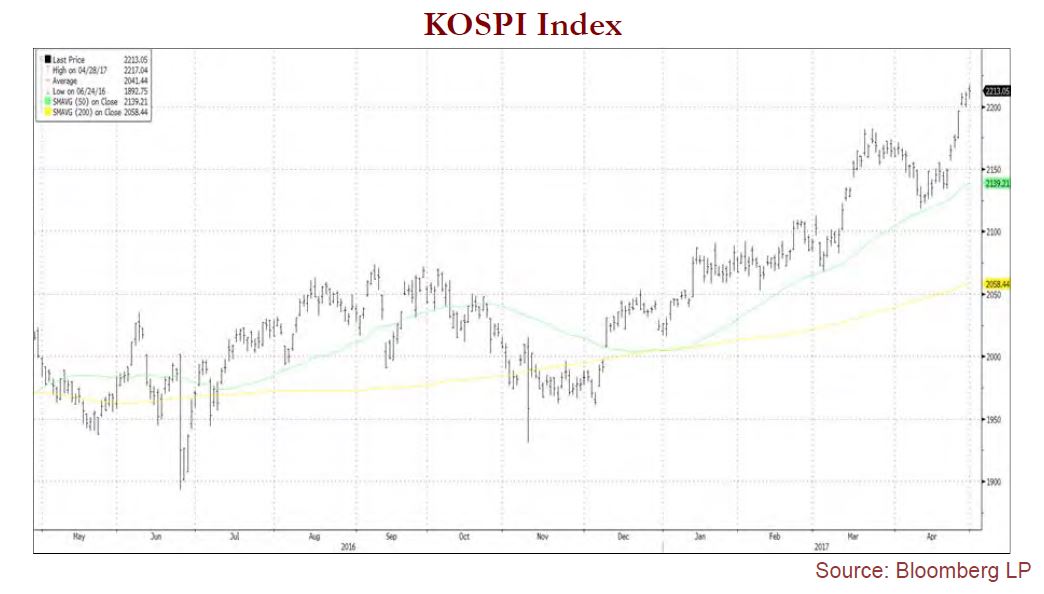Stock Indices:
| Dow Jones | 39,807 |
| S&P 500 | 5,254 |
| Nasdaq | 16,379 |
Bond Sector Yields:
| 2 Yr Treasury | 4.59% |
| 10 Yr Treasury | 4.20% |
| 10 Yr Municipal | 2.52% |
| High Yield | 7.44% |
Commodity Prices:
| Gold | 2,254 |
| Silver | 25.10 |
| Oil (WTI) | 83.12 |
Currencies:
| Dollar / Euro | 1.08 |
| Dollar / Pound | 1.26 |
| Yen / Dollar | 151.35 |
| Canadian /Dollar | 0.73 |
The Trump Tax Plan
The way it looked at first blush is unlikely to be the way it looks at the finish line. But the facts are a plan is on the table, it is growth oriented and whether it lasts ten years if it goes through the reconciliation process or becomes “permanent,” who cares? When did the U.S. tax code ever become permanent anyway?
The two most interesting points to this plan from our perspective are the moves to a 15% tax rate on S-Corp income and removal of the deduction for state and local taxes. Taxpayers in the high tax states such as New York and California will be clobbered by the removal of deductibility for state levies, while no-state taxes such as Texas, Florida, Wyoming, Tennessee, Washington, etc. get another boost. If this measure passes, watch the wealthy remove themselves from New York and California. This has already started happening in Minnesota, the fourth or fifth highest state taxes in the land, and has been a factor in much wealth moving to Florida.
The corporate tax rate for U.S. companies that are organized as S-Corps is the same rate as the top individual Federal rate of 39%. There are hundreds of thousands, may be millions of U.S. business owners who are taxed as S-Corps, usually small and mid-sized businesses – who do most of the new hiring in the U.S. economy. So imagine what happens if this 15% number goes through or even a 20% rate is where the legislation lands? The after-tax return on capital soars, hiring and investment should pick-up and a significantly faster growth rate for the U.S. economy becomes a very real possibility. This legislation is badly needed, as the Atlanta Fed GDPNow forecast is down to +0.2% for 1st quarter 2017.
Moving the GDP needle from 2% to 3% growth annually, generates an incremental $200 billion in new economic activity for the country every year. America will be back in growth mode if tax reform takes place, reducing the tax/regulatory burden on small/mid-sized businesses. These proposals are a good start. The question is will the Republicans on the right, the Freedom Caucus, support his plan or will Trump have to move to the middle and entice enough Democrats to join in to get these measures approved? The Freedom Caucus already shot the health care reform bill before it had a chance to pass. If they obstruct tax reform, the political calculus for 2018 begins to change as well as growth expectations for the economy.
Source: Bloomberg News
French Elections
So the partnership, which holds the EU together, France and Germany, is now one election/one candidate/two weeks away from dissolving. Mervyn King, the former head of the Bank England had it about right when he commented that the forces of democratic nationalism and centralized elitism would meet head on. They did meet in the U.S. and we saw the result. To some extent that happened with Brexit. But a collision between those two forces in Europe, where a construct which kept the peace for 70 years in an area which historically has been prone to conflict, is potentially hugely destabilizing.
